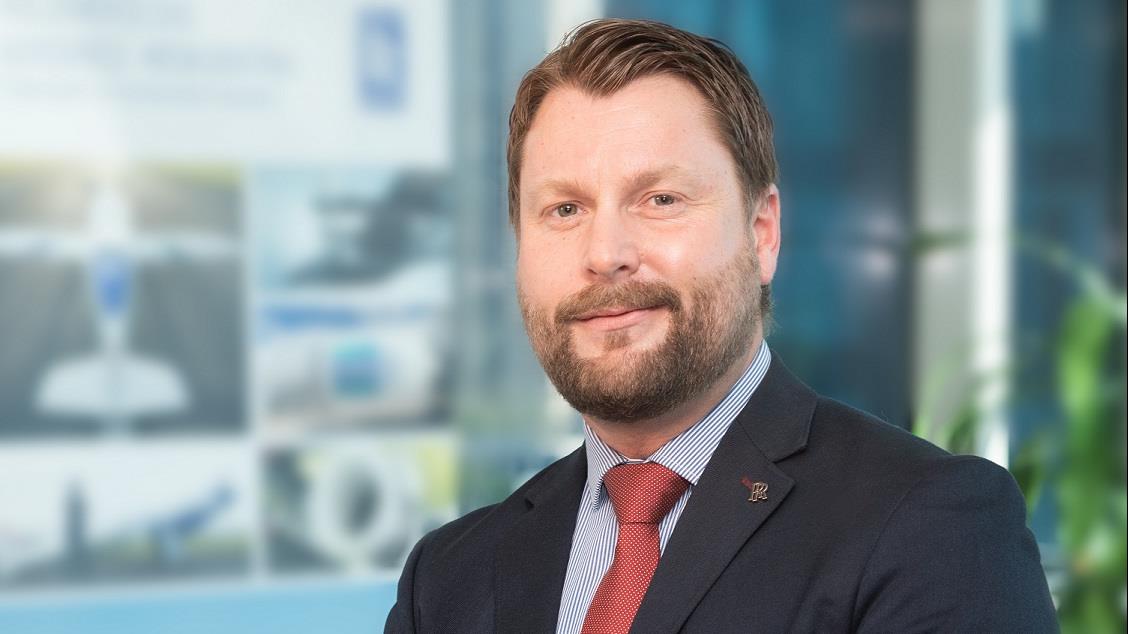

UK-headquartered Rolls-Royce aims to achieve net zero carbon emissions from its operations and facilities, excluding product testing and development, by 2030.
This entails building energy-efficient facilities and a significant reduction in energy consumption and waste sent to landfills.
Meeting its long-term sustainable target will inevitably require facilitating its customers – which range from aircraft and transport operators to utilities – meet theirs.
“We have a long history of bringing to market ever more efficient technologies in aviation, transport and mobility and nuclear power generation,” says John Kelly, Rolls-Royce’s president for the Middle East, Turkiye and Africa (Meta) region. “These sectors being hard-to-abate or decarbonise does not stop us [from pursuing energy efficient solutions].”
Sustainable jet fuel
The company recognises that the adoption of sustainable aviation fuel (saf) and other synthetic fuels produced in a non-carbon-generative process, among other technologies, will play a key role in decarbonising the aviation sector.
Kelly says Rolls-Royce continues to work on and invest in more efficient gas turbine jet engines, such as the UltraFan, a demonstrator aero engine that is designed to burn 25 per cent less fuel compared to the first generation of its Trent jet engine.
UltraFan can be used for narrowbody and widebody aircraft that may be developed from the 2030s. It will also be ready to run on saf from day one of service.
“Regulations and enabling factors are key to reducing the carbon footprint of jet engines,” says Kelly.
Related read: Emirates and Shell Aviation sign sustainable fuel deal
It is understood that Rolls-Royce's ongoing research and tests drawn from initiatives such as its UltraFan programme will also contribute towards improving the efficiency of aircraft fleets and operators.
“We do not produce saf, but we work with partners and regulators and fuel offtakers to look for ways to improve its commercial viability.
“We have tested commercial and business aircraft limit of 50 per cent saf, and established that we can operate a flight safely using 50 per cent saf. We are also pushing to get to 100 per cent, which should lead to increased offtake of saf in future,” says Kelly.

The key issues today for saf, as well as other synthetic fuels, include price point, availability and competitiveness compared to conventional jet fuel.
“The key is to scale up not just saf but other synthetic fuels from manufactured chemicals, or fuels that are produced in a non-carbon-generative way," the executive explains. "This requires regulations and government incentives in line with net-zero targets. It also requires ongoing dialogues, as this obviously has a political angle."
Kelly says events like the upcoming Cop28 climate summit and the airshow in Dubai can foster an environment that allows these dialogues and conversations to advance.
Hydrogen fuel
Beyond retrofits and the development of energy-efficient jet engines, Rolls-Royce is also looking at other alternative technologies, such as hydrogen both as a direct fuel source for aircraft as well as for the electrification of transport.
“We have conducted ground tests on engines using hydrogen as a direct fuel source with excellent results. Electrification in airport shuttles and mobility also offers opportunities, leading to shorter commute time or minimising traffic and reducing or eliminating fossil fuel requirement,” explains Kelly.
Air taxis are another area of opportunity, with air taxi engines being tested today.

Kelly reiterates the need for ongoing dialogues with the region’s sovereign wealth funds and regulators, among others, about how existing products across its business can be improved.
“Technology is a route to decarbonise. We have a range of solutions that will be available at different times as we get to net-zero… these solutions offer potential incremental benefits to users and customers.”
New nuclear
Small modular reactors (SMR), or the so-called 'new nuclear', is another non-carbon power resource that Rolls-Royce has up its sleeve.
“We have products that can produce 470MW of electricity, which is another option for a non-carbon power source,” says Kelly.
“On one hand, we try to help enable synthetic fuels for aviation, on the other we also have SMR that helps enable synthetic fuels or enable utility companies and electricity grids to produce non-carbon power.”
While Rolls-Royce supports the development of wind and solar energy, both require tremendous amounts of cement and steel and using SMRs can help alleviate the carbon intensity of these materials and technologies.
“SMRs help scale up synthetic fuel production in a non-carbon-generative way,” says Kelly.
With at least two to three jurisdictions in the Middle East and North Africa region looking at SMRs, Kelly confirms ongoing discussions with those countries.
Related read: Small reactors top nuclear agenda
The confluence of significant growth and the drive to achieve long-term economic programmes such as Saudi Vision 2030, which in turn places a strong focus on manufacturing and development, means Rolls-Royce is on hand to explore partnerships and potential local production for relevant products or technologies.
“We are here to partner… the Rolls-Royce vision is to enable local development and to be able to manufacture globally and foster a global supply chain,” he concludes.
Photos: Rolls-Royce
You might also like...

TotalEnergies to acquire remaining 50% SapuraOMV stake
26 April 2024

Hyundai E&C breaks ground on Jafurah gas project
26 April 2024

Abu Dhabi signs air taxi deals
26 April 2024

Spanish developer to invest in Saudi housing
26 April 2024
A MEED Subscription...
Subscribe or upgrade your current MEED.com package to support your strategic planning with the MENA region’s best source of business information. Proceed to our online shop below to find out more about the features in each package.




